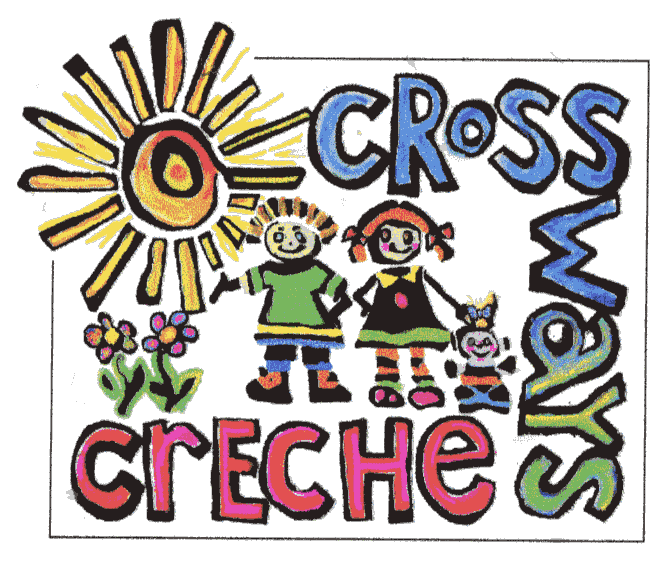Rationale: (why do we need this policy?)
At Crossways Community Crèche the health and safety of each child is paramount. On occasion we are required to administer medicines to maintain a child’s wellbeing. At these times we must ensure that all medicines (prescription and non-prescription) are approved for a particular child, administered and stored appropriately and safely, and accurate records are maintained.
TE WHĀRIKI Well-being - Goal 1: Children experience an environment where their health is promoted.
Objectives: (What do we hope to achieve?)
- To ensure medications are administered with the proper care and a clear understanding of roles and responsibilities.
- To ensure parent authorisation requirements are maintained for the different categories of medicines.
- To ensure a record is kept of all prescription and non-prescription medicine given to children while attending the centre, which demonstrates we have fulfilled our duty of care.
- To ensure medications are not a hazard to any child’s health.
Guidelines: (How will we achieve it?)
Authorisation
Our centre ensures that all medicines (prescription and non-prescription) are administered appropriately and safely according to the category of medicine (in accordance with licensing criteria HS28 under the Education (Early Childhood Services) Regulations). Parents are required to provide written authority before any medicine can be administered.
Category (i)
At enrolment, parents are asked to provide written authority for the use and preparation of category (i) medicines for the period of their child’s enrolment. Parents will be informed of all category (i) medicines stored and used at the centre. If the list of medicines changes, parents will be notified and consent sought again.
Category (ii)
A category (ii) medicine will only need to be administered by crèche staff for a limited period of time. At the beginning of each day that the category (ii) medicine is needed, the parent must provide written information about the medicine. This will include:
- what the medicine is called (ie the name on the label)
- how it is to be administered (method and dose)
- when the medicine should be given (including the time of day and in response to specific symptoms/circumstances).
The parent must also sign a form at the start of the day to show they give their consent for the centre to administer the medicine.
When they collect their child at the end of the day they must sign again to acknowledge that the centre has correctly administered the medicine.
Parental permission to administer medications cannot be provided over the phone except in an urgent situation, eg one requiring the administration of inhalers. In this case, the consent should be documented and subsequently confirmed in writing.
Category (iii)
At enrolment written authority from a parent is sought for the use and preparation of category (iii) medicines whilst their child is enrolled at the centre. The information required includes:
- what the medicine is called (ie the name on the label)
- how the medication is to be administered (method and dose)
- when the medication should be administered (including the time of day and specific symptoms/circumstances when the medicine should be given)
- parents and the staff will also develop an individual health plan. Parents are asked to advise staff of any changes to the plan (including medicines) in a timely manner
- if a child is prescribed a category (iii) medication whilst already enrolled at crèche, the above process will also be followed.
Roles and Responsibilities
Medicine (prescription and non-prescription) will not be given to a child unless it is given:
- by a doctor or ambulance personnel in an emergency; or
- by the parent of the child; or
- with the authority (appropriate to the category of medicine) of the child’s parent/guardian
A medication register must be maintained recording all medicine (prescription and non-prescription) given to children attending. Records must include:
- name of the child
- name and amount of medicine given
- date and time medicine was administered and by whom
- evidence of parental acknowledgement.
Records of who is authorised to administer which medicines will be maintained will be maintained by the Head Teacher and all staff and relevant parents will be informed.
Only permanent staff members with a current first aid certificate will administer medicines (prescription and non-prescription).
Medicines must be stored safely and appropriately and disposed of or sent home with a parent/caregiver (if supplied in relation to a specific child) after the specified time.
Adults Staff who administer medicine must be provided with relevant information and training relevant to the task. A record must be kept of information and training provided.
Adults Staff who administer medicine are required to double check name, expiry date and that medicine is the correct dosage.
If staff have any concerns that the child is having an adverse reaction after a medication was administered, immediate action should be taken. In mild cases, this might involve only contacting the child’s parents.
References:
Education [Early Childhood Services] Regulations 2008: Regulation 46
Licensing Criteria for Early Childhood Education and Care Centres 2008: Criterion PF28 First aid kit, HS22 First aid qualifications and accident management, HS27 Medical assistance, HS28 Medicine administration
Approved date: September 2022 Review date: September 2024